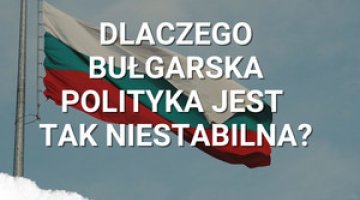Romania and Bulgaria: building a political tandem in the EU
On 12 October the first joint session of the governments of Romania and Bulgaria in history was held. The prime ministers of the two countries established a mechanism of regular intergovernmental consultations in order to strengthen bilateral co-operation and coordination of positions on the EU forum (joint intergovernmental sessions are set to be organised at least once a year). Over a dozen inter-ministerial agreements were signed, including ones on co-operation in designing two hydroelectric power plants on the Danube and cross-border air police operations. A declaration was also issued that called for a positive settlement of the application for entry into the Schengen zone, submitted by the two countries, at the session of the European Council in October this year. This is caused by the fact that towards the end of September the European Council did not agree to the accession of Romania or Bulgaria to the Schengen zone although both countries delivered on the commitments related to this process.
Commentary
- The joint intergovernmental session and the agreements signed are part of a process of strengthening bilateral co-operation. This has been observed since the two countries joined the EU (in 2007). This co-operation can be seen above all in the implementation of joint transport and energy projects such as the designing construction of new bridges on the Danube which constitutes a border between the two countries (there is only one bridge on the border section of the river which is over 500km long) and the construction of the Ruse-Giurgiu gas interconnector. Romania and Bulgaria are equally deepening their cross-border collaboration and security co-operation, including border criminality prevention, illegal migration and corruption. Joint arms purchases (aircraft) are also being considered.
- Both countries are co-operating more closely on the European forum. Romania and Bulgaria hold very similar positions on the negotiations of the EU Multiannual Financial Framework 2014-2020, share convergent views on the implementation of the EU strategy for the Danube region and both are striving for more importance to be given to the Black Sea orientation in EU politics (the development of the Black Sea synergy and preparations of the EU strategy for the Black Sea). The two countries are also involved in pushing for an acceleration in the integration of the Balkan states with the EU. The day after the intergovernmental session the foreign ministers of Romania and Bulgaria, along with Greece’s foreign minister, presented a joint letter to the EC in which they suggested establishing the EU strategy for the Western Balkans.
- Despite social and cultural differences, a weak tradition of close co-operation and asymmetrical economic potentials, the Bulgarian-Romanian tandem will probably function better and better. EU membership forces the two countries to strengthen their co-operation for a better realisation of their interests and to meet challenges resulting from the development weaknesses of both countries (large financial needs accompanied by difficulties in absorbing EU funding). The alliance of these countries is further strengthened by increasingly close economic co-operation (since 2006 the turnover between the two countries has grown threefold up to EUR 3 billion) and also by political problems related to the reluctance of part of the EU countries to deliver on the commitments towards new member states (accession to the Schengen zone, flow of labour force) and the tendency to politically marginalise peripheral EU countries.





